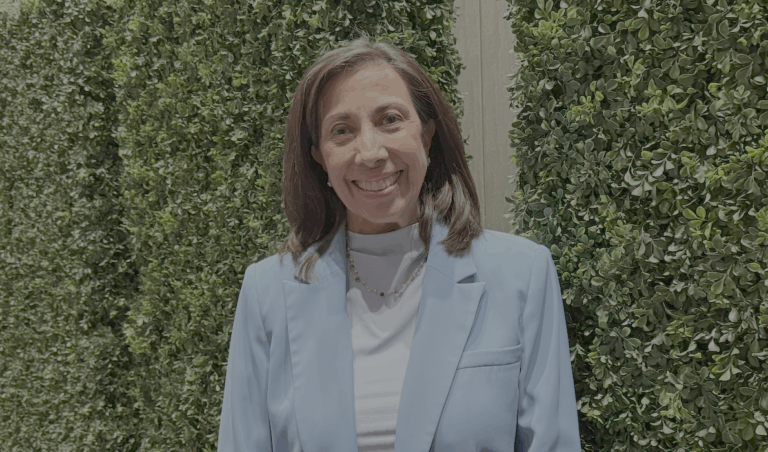Meet Claudia Freed, Who Truly Knows What It Means To ‘Circle Back’
I met Claudia at the Oracle NetSuite conference in Las Vegas recently, and we immediately hit it off. Claudia is the CEO of a social enterprise EALgreen, which invests in education, the circular economy and therefore sustainability.
The organisation, operating out of Chicago, can be found here – https://www.ealgreen.org/pages/home
EALgreen was founded in the early 1980s and links educational establishments in the USA with students who need financial support to access and cover some or all of the costs of their education.
What is EALgreen?
It’s an organisation which gives back to the community it serves and it also promotes sustainability and provides a vehicle for companies to become more sustainable in their practices.
This is facilitated with a philanthropic model around surplus stock, more commonly known as ‘surplus inventory’ in the USA. Organisations donate surplus stock within their businesses to reduce their own waste and support their corporate social responsibility. EALgreen then holds those products, and some, which are appropriate, are sold into universities in return for credits to support a student in financial need. Other products are sold on to create a revenue stream, some are recycled and repurposed so that very little is wasted, and very little goes to landfill.
What impact has EALgreen had?
It’s estimated that this organisation’s impact to date has been to provide $40 million of financial aid to those wanting a college education; more than 23,300 scholarships have been awarded and more than 100,000 tonnes of products have been diverted from landfill.
How did you first become aware of EALgreen?
Well, that goes back many years, right back to my teenage years. I was born and raised in Argentina with my sisters and parents. Sadly, my father Maro died at the young age of 42, leaving my mum Ruby a widow and the hope of going into higher education became just that ‘a hope’.
One day I heard talk of someone who was an ‘exchange student’ and I stated that I wanted to become such a student. And I did. I was taken in by a couple from the USA called Sharon and David and they literally became like second parents to me. After staying with them for a period of time, going back to Argentina and then back again, I was sent on a summer camp at Lake Geneva in Wisconsin. I was a trainer and on my day off, when others went off and had a night away, I stayed behind and I met Mr and Mrs Roskam, they started the organisation but I didn’t know that at the time. They said they’d heard about me through Sharon and David and would I like to appear before their scholarship committee to be considered for their first ever scholarship? I said yes even though I’d didn’t know what to expect.
So you became the first student to receive a scholarship from the organisation?
That’s right I did. I trusted them and I knew it would mean moving to Chicago and I did it – moving two months later. This was the key to my future and I was able to do a degree in economics and computer sciences for that I will be forever grateful.
Did you work anywhere else after completing your degree?
Yes for about ten years I worked for a financial company and I learned so much about the importance of finance and how money works in business. This opened my eyes to the key role finances play in any business or organisation.
When the opportunity came up to return to EALgreen in a senior capacity, the role was a dream post for me, it took me back to my roots and enabled me to give back to those who had given so much to me. I’ve now been involved for more than 30 years and have learned so much about leadership over that period of time.
What was your initial vision for the organisation?
The first thing, and this took some considerable time, was to bring about financial stability, allowing us to compete better, and it’s also, now, one of the reasons why we use NetSuite in our organisation. It’s not just about price, though that has to be considered; it’s about tools to enable us to operate efficiently and be agile and flexible. This then made the price tag work for us. We needed more than technology; we needed a relationship with your software partner which would work for us now and in the future.
What is your advice for anyone who wants to become a strong leader?
For me, the ‘mission’ is key. As a leader, I have to communicate that mission and then live it in everything I do and in every decision I make.
Another tip would be to read the book ‘Leadership Is An Art’ by Max De Pree, the founder of Herman Miller. For me this book has been transformational as it speaks to the kind of leader I aspire to be.
Another tip is to focus on what really matters. We can get distracted in all sorts of ways and by all sorts of possibilities. We need to focus on what matters right now. This means defining the reality of any situation and acting to correct any issues. What you do not want is ‘one thing’ you’ve ignored to cause huge problems or, even worse, to become a single point of failure. Again, for us, this was another reason to use NetSuite.
Finally you have to ‘earn trust’ and that’s a 24/7 job. You have to constantly show confidence to your team and you have to clearly communicate with them. They need to feel safe and supported in every way, from tech through to small daily interactions.
By Fiona Scott

